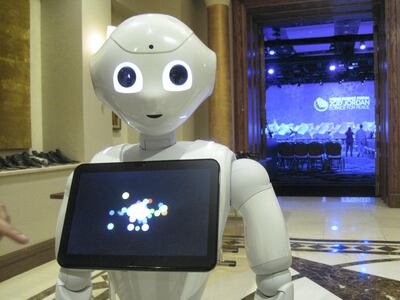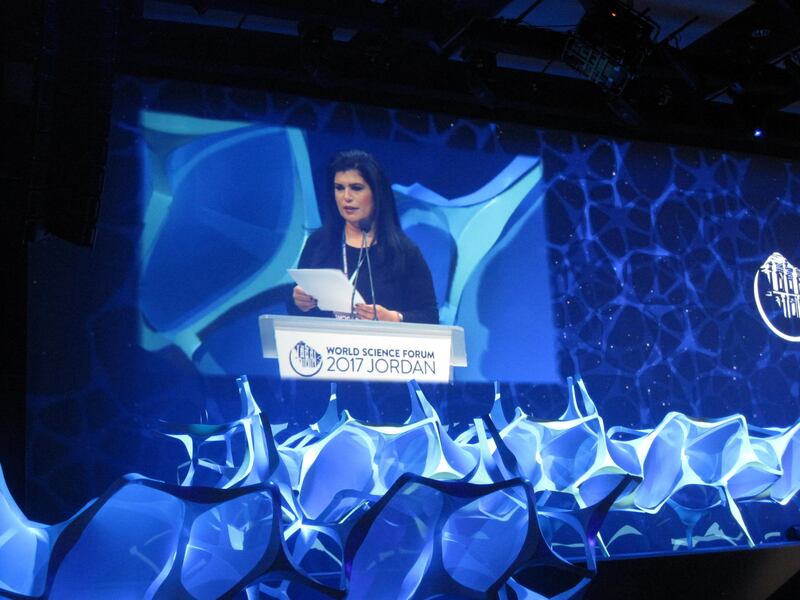Science is vital in helping the world deal with looming regional and global threats such as water scarcity, climate change and poverty, the first World Science Forum to be held in the Middle East has heard.
While technology has helped to lift vast numbers of people out of poverty in recent decades, delegates heard that further innovation is needed to prevent the spread of conflict and ensure development is sustainable.
More than 2,500 scientists from 140 countries have gathered in Jordan for the World Science Forum (WSF), which is chaired by Jordan's Princess Sumaya, a cousin to the country's King Abdullah II.
In an opening address on the theme of 'Science for Peace', Princess Sumaya said holding the WSF in the Arab world would “have a great impact on the other countries of the region”.
She called for “a new social contract for sciences that recognises the role of science in the establishment of sustainable communities”.
Welcome to the world science forum

“The problems of poverty and inequality between the people of the world, and issues like energy, food, water scarcity and urbanisation, these threaten our stability and challenge our existence,” she said at the King Hassan bin Talal Convention Centre, which overlooks the Dead Sea.
________________
Read more:
[ 'Davos of Science' comes to Middle East for the first time ]
[ Scientists hope to turn Middle East into hub for science ]
________________
“We're looking for innovative solutions that save humanity from a future invested in conflicts and challenges … We are going to employ science to find sustainable solutions to the problems of our world.”
In a four-day programme, the WSF is scheduled to cover such diverse subjects as the promotion of female scientists in the Arab world, food security, how the arts can be used to promote science education, efforts to combat drug-resistant bacteria and the challenges faced by refugee scientists, thousands of whom have fled conflict in countries such as Syria.
Linking many of the discussions is the question of how science can be employed to transform societies. This was featured in another inaugural address, by the physicist and scientific commentator Professor Michio Kaku, who said the world had entered “a new golden age of science” in which “hundreds of millions of people had been lifted out of poverty”. He said that science and technology was “the source of prosperity that propels society into the future”.

By increasing the material resources available to societies, he told the forum that scientific advancement could “dampen the fires that produce war[s]” that have over history been fought for access to resources. He said technology's ability to spread knowledge among citizens through innovations like the internet could challenge “cruel dictatorship” and come up with solutions to pressing issues such as climate change.
“In the absence of science is a vacuum that can easily be filled by demagoguery,” he said.
Echoing a key theme of the forum, Rush Holt, chief executive of the American Association for the Advancement of Science, said that science could “contribute to peace and sustainable development”. But he also cautioned that researchers must be allowed free rein to operate internationally.
“We must ensure that governments allow people, and ideas, to move freely if science is to benefit all people,” he said.
In an often hard-hitting address that ranged into political issues facing the Arab world, Jordan's Prince Hassan bin Talal, a brother to the late King Hussein, highlighted the way the region has in recent decades lagged behind in scientific research, although recent years have seen investments increase significantly. He said the Arab world could look to its past, to the “good intentions of early beginnings”, as a guide to how it can progress into the future.
“It's a question of will, a question of resources, a question of priorities,” he said.







